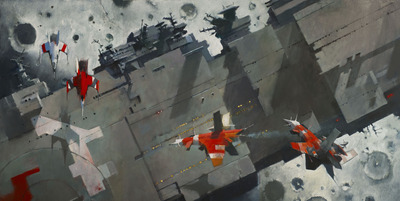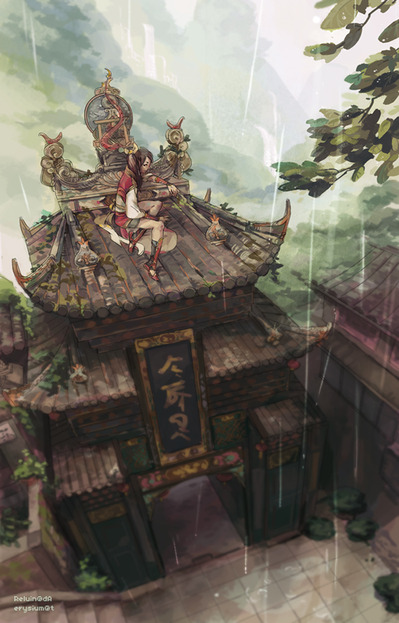SF Book Review, Part 17
Since we’ve come dangerously close to decorative gourd season, motherfuckers, I figure I should knock out a few reviews before the Six Weeks of Halloween horror movie marathon begins in earnest. There’s going to be some overlap here with the most recent book queue, but a few other books I’ve read recently as well.
- Afterparty by Daryl Gregory – I bought this one blind, based solely on a quick recommendation by my friend Chandra. I wish I’d looked at the blurb though, as this book has my deck stacked against it. I really don’t like stories that center around drug use. There are a few that have worked, but more often than not, I find myself frustrated and annoyed. There are some interesting bits here, and in theory, it could have worked for me, but it never really connected. In the future, there’s been a smart drug revolution, with people able to quickly and easily design new drugs and print them out on a “chemjet”. When a new drug called Numinous starts making the rounds, Lyda Rose recognizes it as something she worked on earlier in her career and tries to find out who is making this stuff again. The drug provides a sort of spiritual euphoria, but those who take too much start to hallucinate their own personal guardian angel (or similar figure from your chosen belief system) and that hallucination never goes away. Alas, the SFnal elements are basically window dressing, an excuse to whine about religion or wallow in self-pity and guilt. The world isn’t quite a dystopia, I guess, but we only really see the worst elements of it. This would not be a fatal issue, except that I really couldn’t stand Lyda as a protagonist. She’s clearly had a rough go at it, so I can see where she’s coming from, I just didn’t find her methods particularly effective or worth following in this much detail. If it weren’t for her paranoid friend Ollie, perhaps the only competent character in the book (despite the continual reminder that her paranoia often gets the better of her), this book would have really been miserable. It does get better as it goes on and the ending works well enough, but it’s not really my thing and I found the whole thing rather depressing…
- A Darkling Sea by James Cambias – This story takes place at the bottom of a deep, ice-covered ocean on the planet Ilmatar. A human research party is there to observe the natives – blind lobster-like creatures that congregate around deep sea vents for sustenance and use sonar for navigation. However, the humans are prohibited from actually contacting the Ilmatarans by a peace treaty with a third race, the Sholen, who want to limit humanity’s expansion into the galaxy. When an unfortunate accident results in a human death, the Sholen kick up some diplomatic fuss in order to get the humans to leave, eventually resorting to force… and the Ilmatarans are caught in the middle. I enjoyed this novel greatly. Cambias has created a well balanced set of conflicts here, with sympathy extending to nearly all players. The Sholen, while clearly antagonistic, are not mere carboard cutouts. They have their own motivations and biases that would be amusing if the situation here wasn’t so dire. The Ilmatarans’ society is logically thought out given their environment, and their motivations are well established. You could argue that both alien races are a little too human-like in their thinking, but I think they cleared the bar on that (they aren’t the Tines or Primes, but they’re decent). Thematically, the book covers some interesting ground without ever feeling particularly preachy or manipulative. For instance, the whole thing is pretty thorough takedown of the rather silly Star Trek conceit of the “Prime Directive” (which basically forbids Starfleet personnel from interacting with developing alien races), but that emerges naturally from the story, rather than as a lecture. Overall, this is one of my favorite SF books of the year so far, and is an early possibility for a Hugo nomination next year.
- Grave Peril by Jim Butcher – The third book in the Dresden Files and while it’s an improvement over the second installment (which I did not particularly enjoy), it’s still not quite the fun modern fantasy adventure I keep thinking it will deliver. I have this sneaking suspicion that I’ll probably come back to this series again at some point when I’m looking for something kinda trashy, and I’ve heard the series gets better as it goes on… This installment covers how Harry deals with a particular uprising of ghosts and spirits, as well as a sneaky Vampire power grab. There’s plenty to like here, and there are a bunch of memorable episodes, but then a lot of this falls a bit flat. The primary side characters include Harry’s continually damseled girlfriend Susan and his sorta partner in crime, Michael. I feel like both of them kinda came out of nowhere, though it’s been a while, so maybe they made brief appearances earlier in the series (I’m pretty sure Susand did, actually). Murphy seems like a great character, but she’s sidelined for most of this book. Dresden’s stepmother makes many appearances and represents another thing that feels like it came out of nowhere. Fortunately, the bulk of the story is reasonably well done. As per usual, the magic stuff tends to get out of hand and Dresden seemingly endures wayy too much physical damage to be effective, but that’s par for the course in this series. In the end, I had a fine time with this, even if it didn’t really knock my socks off.
- The Martian by Andy Weir – You know that scene in Apollo 13 where the NASA team dumps a bunch of parts on the table and tries to make a square filter fit into a round hole, using only the equipment available in the space capsule? Yeah, this book is 350 pages of that, only the astronaut in question is alone and stranded on Mars. And he’s got a lot more resources and equipment available to him. Still, this is a fascinating chronicle of how he survives in the hostile environment of Mars. Author Andy Weir cuts no corners, and painstakingly explains how each little bit works. Even more impressive, he makes all of the science approachable and even exciting. He also manages to insert a fair amount of humor into the proceedings, which helps greatly. This isn’t particularly a great character piece, but the challenges facing the character and the problem solving that goes into resolving issues more than makes up for any deficiencies in that area. There are no villains here, only a harrowing fight for survival. This is ultimately one of the most impressive pieces of Hard SF I’ve read in a long time. Not quite as diamond-hard as Greg Egan, but the accessibility and humor make this a gazillion times more approachable and entertaining (if not quite as mind-blowing). You could perhaps argue that the level of detail goes a little overboard, but it was music to this systems analyst’s ears. If this winds up being eligible for the Hugo awards next year, it will almost certainly garner my vote. Highly recommended for those not scared by science (and really, if you’re scared by science, why are you reading science fiction!?)
And that’s all for now. Stay tuned for the Six Weeks of Halloween, starting next Sunday. Up first, I think, will be what I’m calling The Remade (three 50s classics that have been remade).

